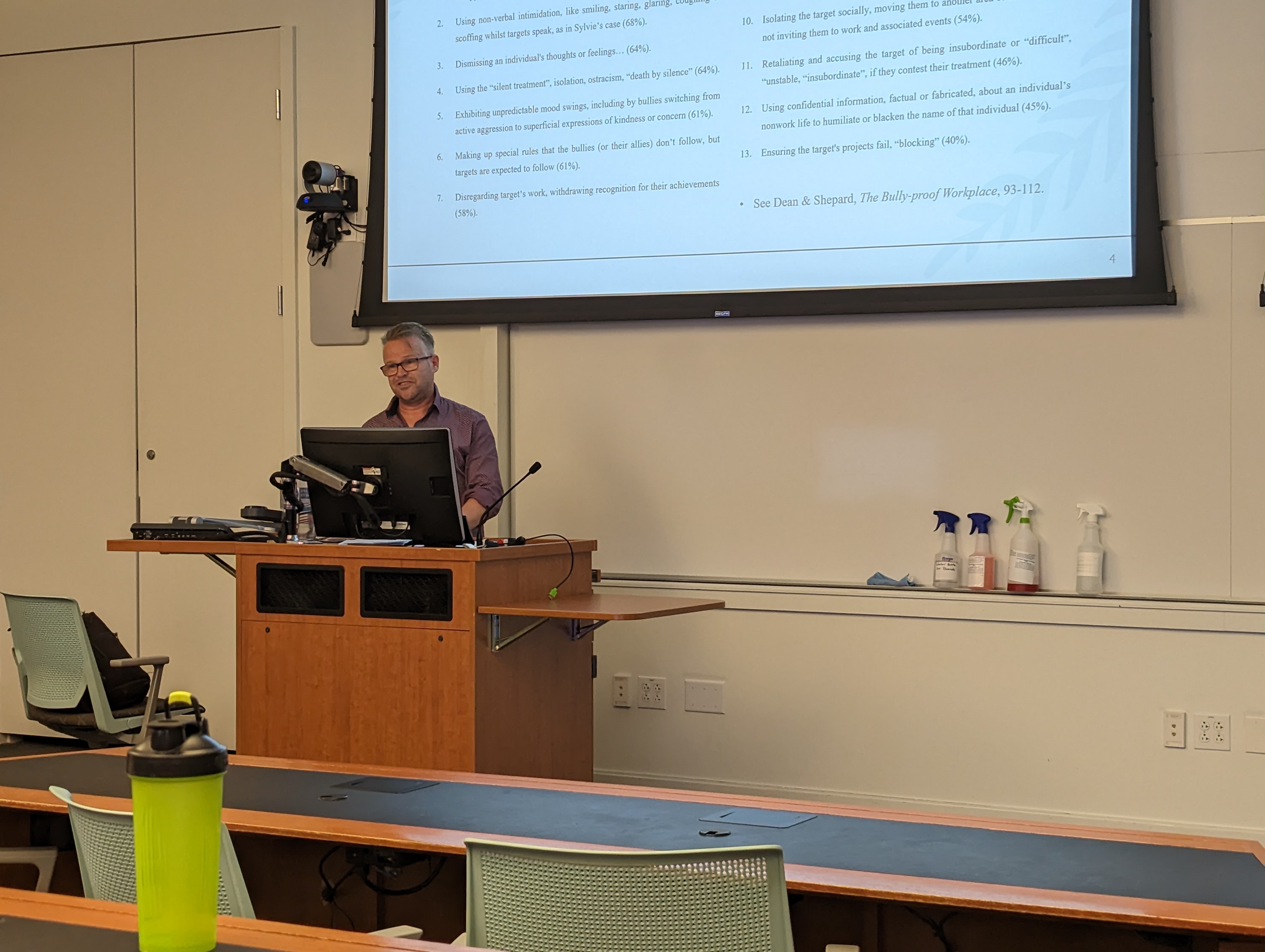Matthew Sharpe, Associate Professor of Philosophy at Deakin University, delivered a lecture on stoicism at UW on Thursday, April 13, outlining how the principles of stoicism can help combat work-place bullying.
Stoicism is a school of ancient Greek philosophy which teaches one ought strive to establish and maintain virtue through logic. The philosophy outlines that by understanding and properly processing emotion through an ethical and logical mind, one can gain a better understanding of the world and become more peaceful.
“Socraties told the Athenians the only thing that a philosopher, or lover of wisdom, wants to ask people is to take greater care of their own souls, or psyches, instead of pursuing external things like money, fame, reputation and power,” Sharpe said.
“According to Stoics, following Socraties, if a person paid less attention to that stuff and paid primary attention to developing the virtues of courage, moderation, justice and wisdom, they will flourish, more or less independently of their material and social surroundings.”
Sharpe referred to bullying as an “undeserved stoic test” and elaborated on how following the philosophy of stoicism can help one endure and navigate the trials of the workplace.
“Do you want to learn the sordid mirror-mechanics of human cruelty, and the bad faith it often involves, blaming the target for the very emotional reactions those involved aim to draw out of their target,” Sharpe asked rhetorically to set the scene of workplace bullying.
“Do you want to feel, thereby, as few others get the opportunity to feel, the wisdom of seeking sources of strength within yourself, rather than drawing them from outside yourself? Well, we’ve got a situation for you when you go into work on Monday.”
Sharpe then outlined five principles of stoicism that, if applied, are intended to help endure hardship: Not internalizing insults; determining what’s in your control even in the worst case scenario; reclaiming boundaries; managing emotions; and managing symptoms of stress, anxiety and PTSD.
“We shouldn’t expect to become happy through acquiring things from others. We should desire things, external things, with the kind of reserve which recognizes others’ agency and all the forces in the world that we can’t control. Happiness is an activity that requires the cultivation of strength of character,” Sharpe said.
“They need to learn to pay more attention to what they can control, rather than what the world provides them. We can control what we think. It’s not always easy. We can control what we desire. We can control what we wish to avoid, what to say or write, and what we do. Everything else Zeus has allocated to other people or to the cosmos.”
Students in attendance expressed appreciation for the event.
“Dr. Matt Sharpe, he’s obviously very well versed in stoicism and philosophy, and that’s an area I’m interested in mainly for societal applications like anxiety, depression, typical mental health things and its treatment,” Luke Lamb, a Junior studying molecular biology, said.
“I think the dichotomy of control, focusing on what’s in your control as opposed to what’s out of it, is one of the most important principles for people in general.”
Sharp believes that the philosophy of stoicism has the potential to help students at UW better handle their stressors and live a more fulfilled life.
“We can’t always control what happens to us; we can’t control how others behave. We can get better at becoming aware of how we respond and learn and practice ways of responding that are reactive and that don’t inadvertently make the situation worse,” Sharpe said.



